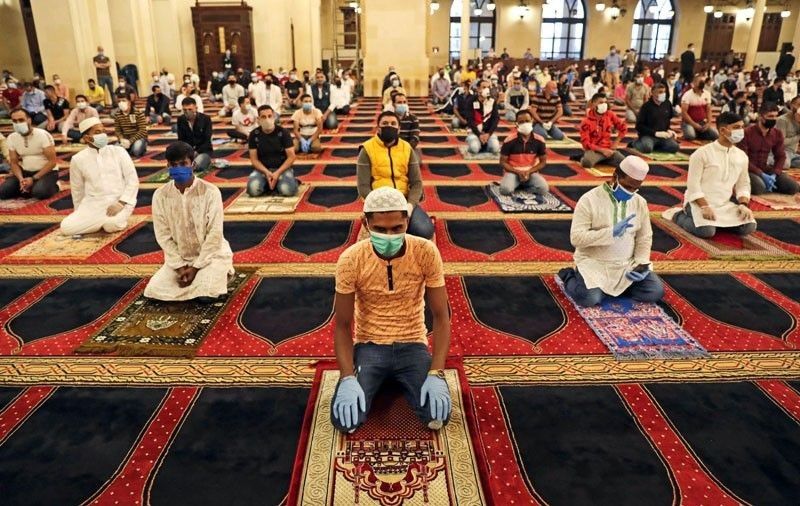House OKs landmark religious freedom bill

MANILA, Philippines — The House of Representatives passed on third and final reading on Monday a bill that aims to secure people’s right to exercise their religious beliefs without fear or discrimination.
Voting 256 against one and three abstentions, lawmakers approved House Bill No. 6492 or the Magna Carta on Religious Freedom, which consolidated other similar bills protecting people’s religious beliefs.
The measure essentially aims to operationalize Section 5, Article III of the Constitution, which safeguards Filipinos’ "free exercise and enjoyment of religious profession and worship, without discrimination or preference."
The freedom of religion or belief is also enshrined in the Universal Declaration of Human Rights among other international laws that bar discrimination based on religious belief.
If passed into law, the Magna Carta on Religious Freedom Act will allow people to practice their religion without restraint, except if "the free exercise of religious freedom or conscience results to violence" or harms "public safety, public order, health, property and good morals."
Bible-based beliefs
Among the authors of the bill is Rep. Bienvenido Abante (Manila), who also filed House Bill No. 5717 "to protect and guaranty the rights of heterosexuals in their dealings with their fellowmen."
READ: House bill seeks 'protection' of the 'rights of heterosexuals'
That bill, which is still pending before the House panel on women and gender equality, seeks to protect straight people's supposed right "to adhere to, practice, proclaim, promote, propagate, defend and protect their religion and religious beliefs, convictions and standards without interference and/or abridgment" and "to practice and enjoy their religious profession and worship without interference or abridgment with the right to exclude therefrom others of different beliefs or faith."
Similar phrases are found in the proposed Magna Carta on Religious Freedom, although House Bill No. 6492 does not mention exclusion.
Rep. Eddie Villanueva (CIBAC party-list), also an author of the religious freedom bill, has also raised the argument of religious freedom in opposing the Sexual Orientation and Gender Identity Expression Equality bill.
"What happens to a Christian like me and to the majority of people in this August chamber if we are to be threatened with punishment every time we share our Bible-based beliefs on matters of transgenders and homosexuals?" he said on the House floor in 2019.
The proposed religious freedom bill recognizes the right to act according to one's conscience as long as "the act does not inflict physical or material harm to any person, does not infringe on the religious freedom of others or is not contrary to morals, and laws on health, property, public order and safety."
Penalties for forcing someone to leave religious group
The proposed magna carta will also penalize those who will force others to choose or leave a particular religious group, threaten others with harm to change their religion, defame or humiliate others because of their religious beliefs, obstruct the dissemination of religious information, among other violations.
The measure also prohibits “exerting undue influence over the decisions made by any leader or leaders of a religious community through monetary, political, social and personal gains as well as parochial interest, denying employment to qualified applicants solely on the basis of religion, and terminating the employment of a person solely on the basis of one’s adherence to religious beliefs.”
The bill proposes a fine of P100,000 to P500,000 and imprisonment of around six to eight years for persons violating the law for the first time. Subsequent violations can ramp up fines to about P2 million and imprisonment to a maximum of ten years.
The proposed measure also requires the Department of Justice to run a toll-free hotline that would answer people’s queries regarding their rights related to religion.
Nearly four out of five Filipinos or 80 million out of nearly 101 million persons identify as Roman Catholic, based on 2015 data from the Philippine Statistics Authority.
At least 6% or six million identify Islam as their religious belief, while 2.6% or 2.6 million are affiliated with Iglesia ni Cristo.
- Latest
- Trending

































